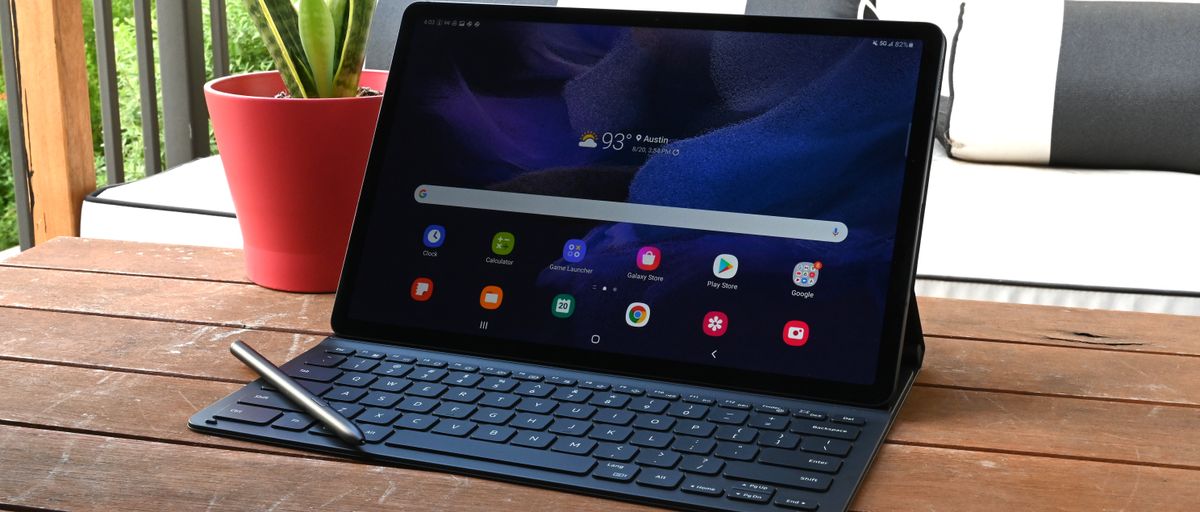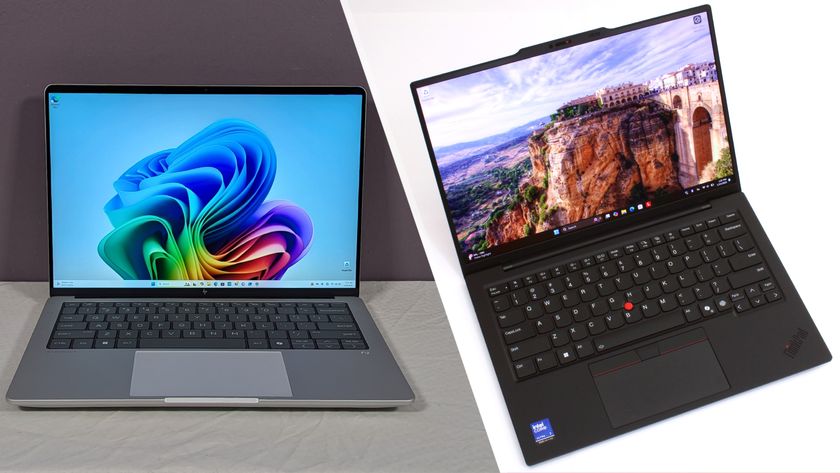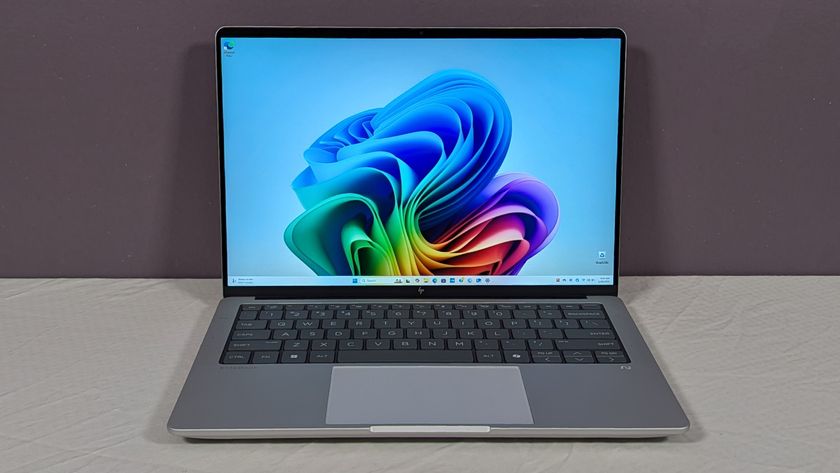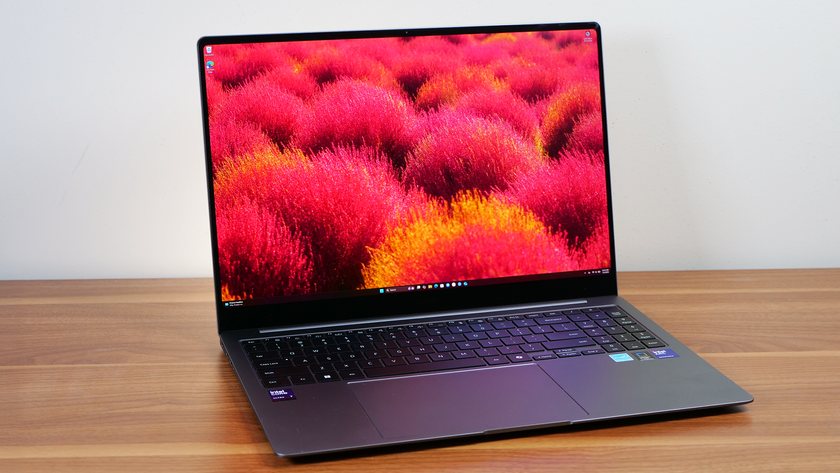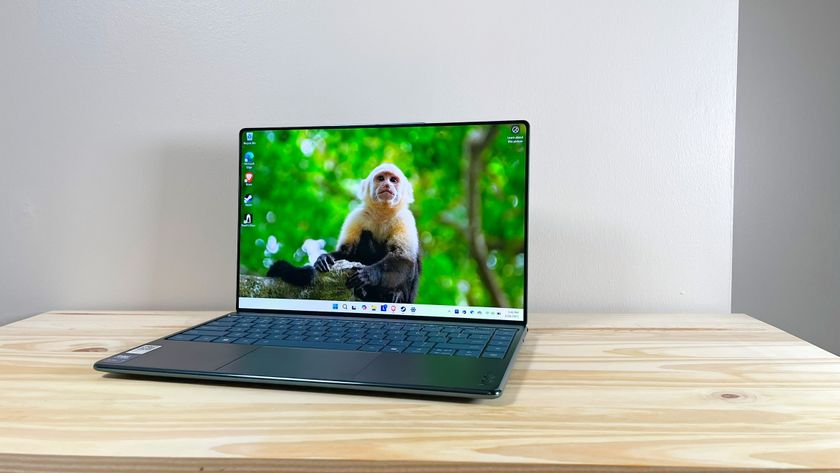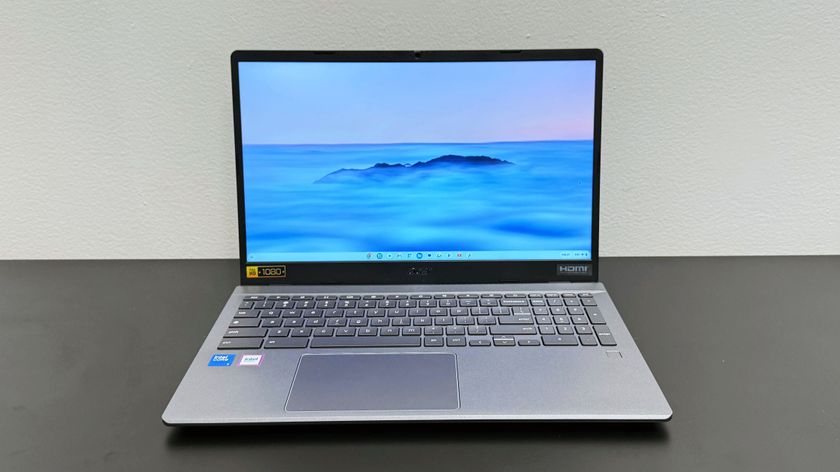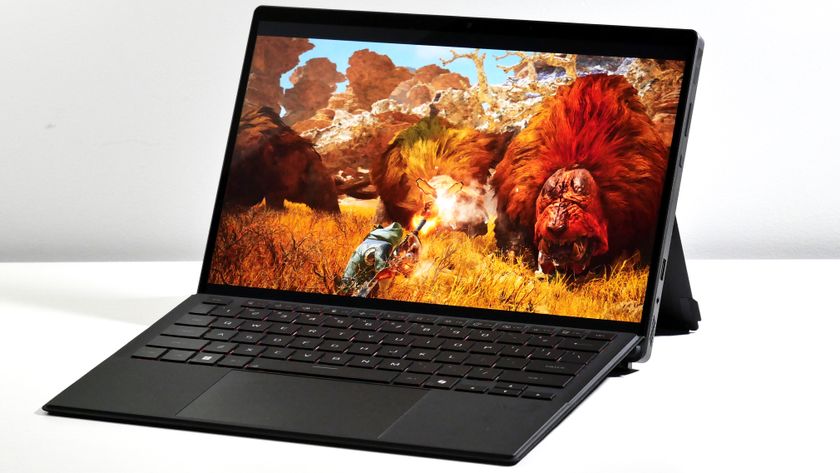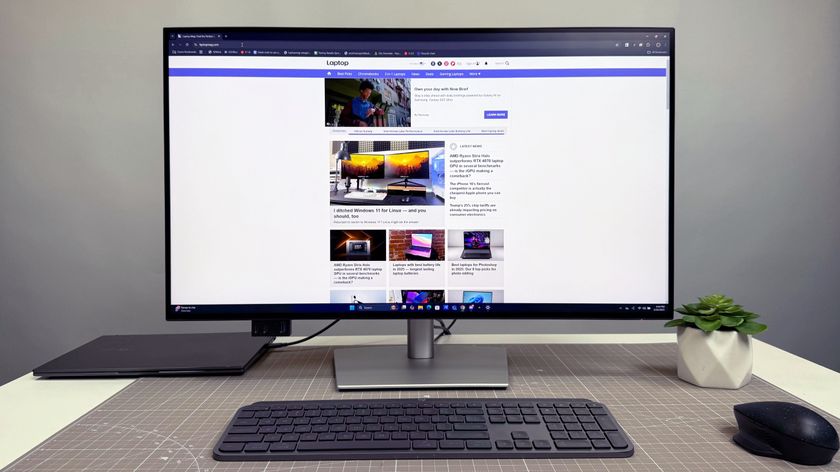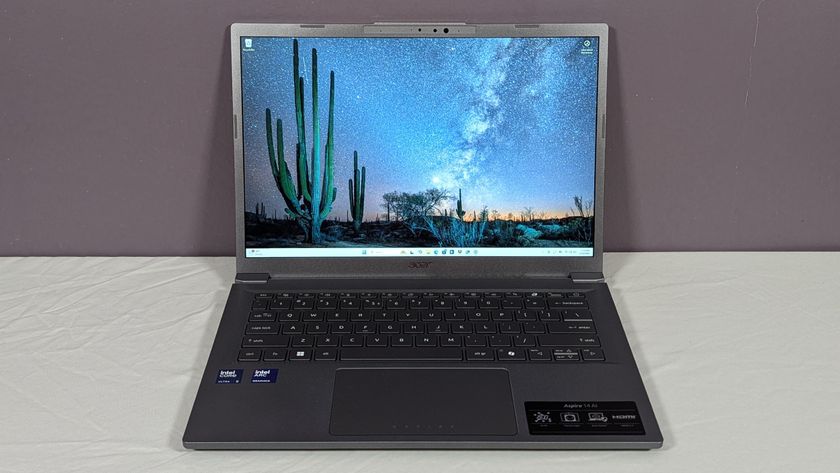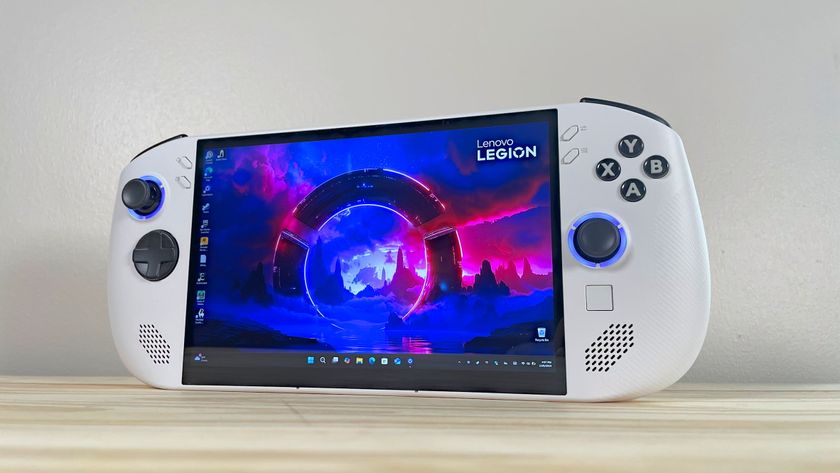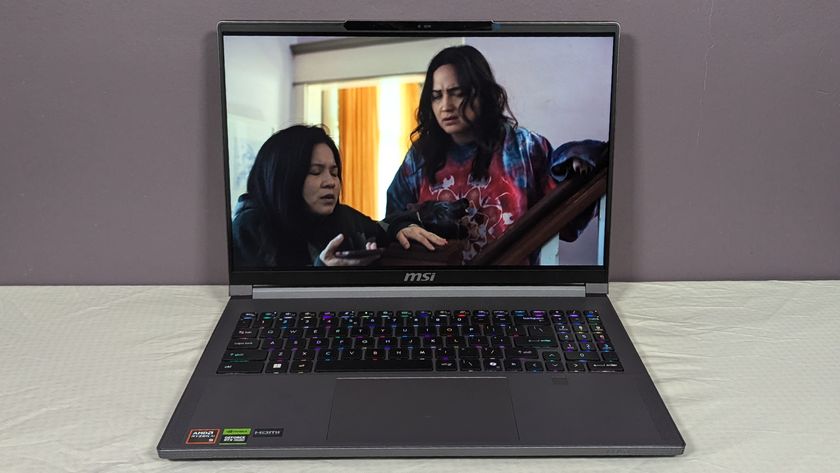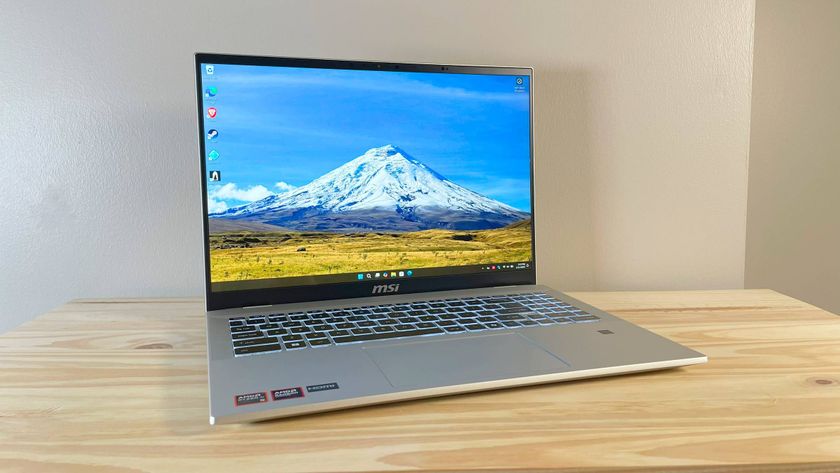Laptop Mag Verdict
With a gorgeous 12.4-inch display and epic battery life, Samsung's Galaxy Tab S7 FE is a good sub-flagship tablet for streaming media and lightweight productivity. But keep in mind that an underpowered processor and the usual Android shortcomings limit its usability.
Pros
- +
Gorgeous 12.4-inch display
- +
Very long battery life
- +
Premium design
- +
S Pen included
- +
5G support
Cons
- -
Weak performance
- -
Android on tablets has issues
- -
No fingerprint sensor
Why you can trust Laptop Mag
Price: $669 (starting at $529)
Display: 12.4-inch, 2560 x 1600-pixel TFT LCD (60Hz)
Storage: 64GB (only option for 5G), 128GB, 256GB, 512GB
CPU: Snapdragon 750G (5G); Snapdragon 778G (Wi-Fi)
Cameras: 8MP rear; 5MP front
Software: Android 11 with DeX
Battery life: 13:07
Size: 11.21 x 7.28 x 0.25 inches
Weight: 1.34 pounds
FE stands for "Fan Edition" or, in more practical terms, the value pick in Samsung's beloved Galaxy series. The brand debuted with the Galaxy S20 FE smartphone, and as intended, quickly became a fan-favorite for the performance and features it brought to the sub-flagship category. The Galaxy Tab S7 FE, Samsung's latest Android tablet, attempts to emulate that success by taking some of the Tab S7's best qualities and offering them at a lower price.
But the success of the Galaxy Tab S7 FE isn't as guaranteed. Samsung doesn't have the same foothold in tablets as it does with phones. This is iPad territory, and in this case, an area owned by the iPad Air. In some ways, the Tab S7 FE handles the challenge well, offering a larger (and better) screen than what you get from the iPad, longer battery life, and an included stylus in the S Pen.
But the downsides are glaring. Sluggish performance from an underpowered chip only highlights the drawbacks of running Android on a tablet. They don't keep the Galaxy Tab S7 FE from being one of the best tablets and best kids tablets for media streaming or basic productivity, but this isn't the do-it-all value pick the FE name suggests.
Samsung Galaxy Tab S7 FE price and configuration options
Priced between the Galaxy Tab S7 and the Galaxy Tab S6 Lite, the Galaxy Tab S7 FE (Wi-Fi) with a Snapdragon 778G chip and 64GB of storage can be pre-ordered for $529. Upgrading to 128GB of storage raises the price to $599 while the 256GB model goes for $679.
Opting for our 5G review unit gets you the Snapdragon 750G SoC and raises the price considerably. Currently sold in a single configuration, the Galaxy Tab S7 FE 5G costs $669 and comes with 4GB of RAM and 64GB of storage.
Samsung Galaxy Tab S7 FE design
Cut from the same mold as the Galaxy Tab S7, this Fan Edition looks identical to its pricier relative.
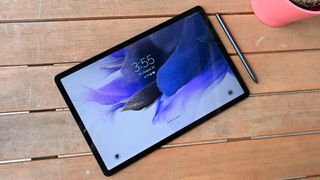
It's a sleek, unibody aluminum slate; the rear houses an oblong camera module on one corner and a subtle Samsung logo on another. Flipping the tablet around reveals thin display bezels that put the large display on center stage. You'll notice the webcam on the longer end of the Galaxy Tab S7 FE, unlike the iPad Air where it's awkwardly placed on the side while in landscape mode.
On the edge of the tablet are a volume rocker and power button. I'm glad to see the teardrop-shaped magnetic stylus holder return on the top edge after its absence on the Galaxy Tab S6 Lite. This magnet holds the S Pen in place and charges the stylus while it's not in use.
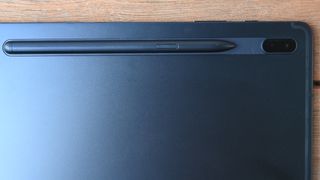
But we've seen this all before — what I'm really excited about are the Tab S7 FE's color options. Available on the Wi-Fi model are Mystic Silver, Mystic Green and Mystic Pink. Then there's the Mystic Black Samsung sent us (cue sad trumpet sounds).
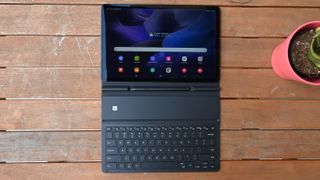
What's missing from the design is an embedded fingerprint reader for fast and secure biometric login. Yes, you can use Samsung's face recognition, but its security track record wouldn't exactly qualify for the Olympics.
At 7.28 x 11.21 x 0.25 inches and 1.34 pounds, the Galaxy Tab S7 FE is slightly thicker and heavier than the Samsung Galaxy Tab S7 Plus (11.22 x 7.28 x 0.22 inches, 1.27 pounds). It’s also understandably less portable than the 10.9-inch iPad Air (9.7 x 7 x 0.24 inches, 1 pound).
Samsung Galaxy Tab S7 FE display
One advantage the Tab S7 FE enjoys over most tablets in this price range is its large, colorful display. It isn't the breathtaking Super AMOLED panel on the Tab S7 Plus, but the 12.4-inch, 2560 x 1600-pixel TFT LCD screen on the FE is great for watching videos, editing photos or browsing the web.
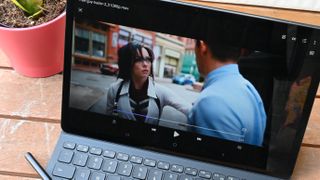
Fire sprouting from a flamethrower held by a man casually walking down the street illuminated the screen with lurid oranges and yellows when I watched the Free Guy trailer. Colors popped, but weren't oversaturated to the point of looking unnatural. Ryan Reynolds' jacket was the right tone of baby blue and I could see at least four different hues in Jodie Comer's marvelous hair. The panel is also sharp; I had no problems seeing fine details like individual strands of hair on Reyonlds' enviable head.
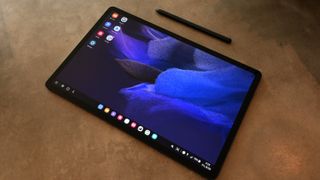
I only wish Samsung had upped the refresh rate of this 16:10 panel to 120Hz. Soon, every smartphone, TV and laptop will have a high refresh rate, making the sluggishness of the Galaxy Tab S7 FE's 60Hz more jarring.
According to our colorimeter measurements, the Galaxy Tab S7 FE's display covers 102% of the DCI-P3 color gamut, making it much more vivid than the iPad Air (73%) but not as eye-popping as the Galaxy Tab S7 Plus (149%) with its OLED panel. This screen is about as colorful as the one on the 11-inch Tab S7 (108%).
It also gets very bright, maxing out at 517 nits with adaptive brightness turned off and 623 nits with adaptive brightness on. I had no problems using it under direct Texas summer sunlight. For comparison, the iPad Pro reached only 440 nits while the Galaxy Tab S7 hit 499 nits, and the S7 Plus' panel reached 430 nits.
Samsung Galaxy Tab S7 FE S Pen
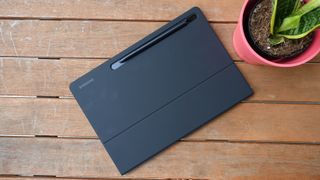
Included in the box is an S Pen stylus for drawing, taking notes or navigating the web without smudging up that large screen. This is the standard, non-Bluetooth pen, so no air gestures or remote app control. Still, the S Pen is a handy tool for those who need to scribble, even if this isn't a pro-grade stylus.
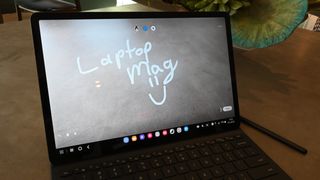
Samsung pre-installed several user-friendly drawing apps (Live messages, AR Doodle, Screen Write) on the Tab S7 FE and tablet owners also get a six-month trial to Clip Studio Paint. Of course, the Android app store is filled with drawing apps, but not all are optimized for such a large screen. I didn't take the risk and chose to play around with AR Doodle, which I used to overlay silly images onto my face. When I moved, the bunny ears and clown nose I sketched moved with me (sorry, I couldn't get myself to save a screenshot).
Samsung Galaxy Tab S7 FE Keyboard Cover
If you want to turn your tablet into something of a laptop replacement, Samsung sells a Book Cover Keyboard accessory for $160. My fears of it being too cramped were quelled when I quickly typed the above review section without making too many errors (at least, not any more than I usually make). The keys are predictably shallow, but have a satisfying click and are spaced out enough to prevent accidental presses.
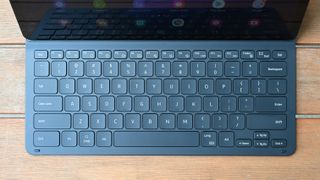
Missing is the touchpad found on the Book Cover accessory for the Galaxy Tab S7+. But fear not because (according to Samsung) the keyboard for the pricier model will work on the Galaxy Tab S7 FE. Do you need it? Not necessarily.
Android isn't optimized for cursor input and the Galaxy Tab S7 FE's underpowered chip (more on this below) limits the sort of work you can get done. And yet, I caught myself instinctively reaching below the spacebar to avoid having to lift my hand, only to foolishly tap on my desk. And because there is no touchpad, things like right-clicking or clicking and dragging can be a nuisance.
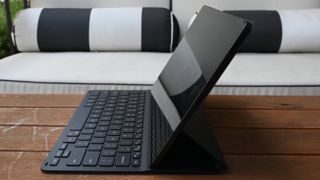
The cover also lacks a kickstand, for better or worse. I have my gripes with kickstands — deploying them is a pain and they aren't great for lap use — but they do allow for adjustable viewing angles. The Galaxy Tab S7 FE's Keyboard Cover crimps at the corner when you bring the tablet forward, creating a folded hinge (à la Apple Smart Folio). Getting the tablet to stand upright is effortless, but it means being locked at a single viewing angle, which can be a problem if you're using the tablet on your lap.
Samsung Galaxy Tab S7 FE audio
Dual speakers positioned on the top and bottom of the tablet produce good sound quality. Tuned by AKG, the drivers filled my office when I listened to Foxing's "Beacons." Complex electronic instrumentation caused some straining in the upper ranges, but I didn't hear any distortion, even at maximum volume.
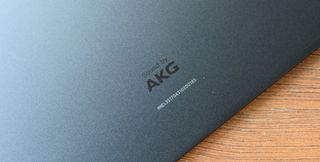
Vocals were clear and present, and while the drum had a digitized quality, the song had enough energy to get my toes tapping. Songs with pared-down sonics, like The Killers' "West Hills" sounded excellent.
Samsung Galaxy Tab S7 FE performance and 5G
Here is where Samsung gets itself into some trouble. By using the Qualcomm 750G SoC in the Tab S7 FE, the company risks losing what made the Galaxy S21 FE such a compelling phone — flagship performance at a lower price. Sure enough, the Tab S7 FE is no speedster. I loaded eight Chrome tabs, one of which played a YouTube video, without much delay, but the next two took almost a full minute to fully render.
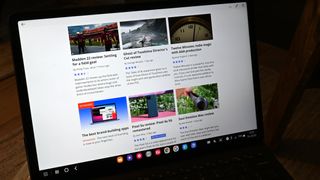
Yes, the slate can handle basic tasks like video streaming or Google Docs without stuttering, but demanding apps — particularly gaming apps — or a poorly managed Chrome browser will cause problems.
On the Geekbench 5.0 overall performance test, the Tab S7 FE clocked a lowly 1,965, miles behind the iPad Air (4,263, A14). Illustrating the performance hit you take with the FE model are the Galaxy Tab S7 and S7 Plus' much higher scores of 3,068 and 3,074, respectively.
When we tested the graphics performance, the Tab S7 FE scored 2,605 on the Basemark GPU 1.2 OpenGL test, many times below the Galaxy Tab S7 (8,076) and Galaxy Tab S7+ (8,100).
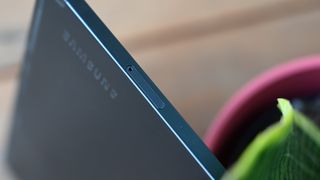
Available at a premium cost is the 5G version, which supports sub-6Ghz bands, not the speedier (and much more elusive) mmWave variant. Samsung was kind enough to include a T-Mobile 5G SIM card in our unit to test the speeds. Sadly, I clocked only 4.5Mpbs in my Austin, Texas apartment, but your mileage will vary depending on your location.
Samsung Galaxy Tab S7 FE battery life and charging
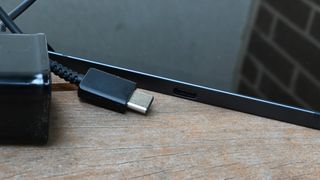
"What do you mean your iPad Air shut down? My Galaxy Tab S7 FE isn't even in power saver mode yet!" I can already hear a snooty Samsung fan jabbing at their iFriend. Samsung gets the win this time because the Tab S7 FE's 10,900mAh battery lasted for an outstanding 13 hours and 7 minutes on the Laptop Mag endurance test, which involves continuous web surfing at 150 nits.
The iPad Air (10:29) was no slouch, either, but it powered down more than two hours hours before the Samsung. This FE model matched its pricier siblings in the Galaxy Tab S7 (13:08) and outlasted the Galaxy Tab S7 Plus (8:51).
The Tab S7 FE supports 45W fast charging and the adapter comes in the box (yay!) though it only outputs 15W, so expect sluggish charging speeds.
Samsung Galaxy Tab S7 FE cameras
The camera setup on the Tab S7 FE was downgraded from the standard S7. Gone is the secondary ultra-wide lens, and the 12-megapixel main camera drops to an 8MP primary lens. On the front, the 5MP selfie cam is a step down from the 8MP on the pricier version.
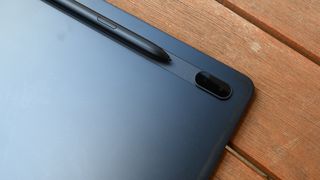
Picture quality isn't up to the standard of a Galaxy smartphone, but it'll do in a pinch if your lighting is good. This photo I snapped on my patio exhibits true-to-life colors and acceptable details so long as you don't zoom in.
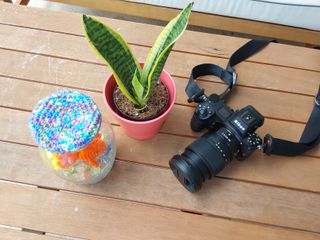
I find front-facing cameras on tablets to be more important than rear ones so I wish Samsung had chosen a more detailed selfie lens. The front camera on the Tab S7 FE is miles ahead of any laptop webcam but not as sharp as what you get on a modern smartphone.
Android 11 and DeX
Samsung being one of very few companies releasing Android tablets means the platform doesn't get enough attention from developers. As a result, some apps and web pages are poorly optimized on this larger screen. That was never more apparent than when I visited ESPN to find a broken page seemingly built for phone screens (see the below photo).
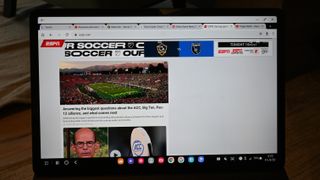
The good news is that Android 11 is a lightweight operating system that moves smoothly, even on lesser hardware. Navigating the menus felt snappy and fluid, and all of the interfaces scaled nicely on the large screen.
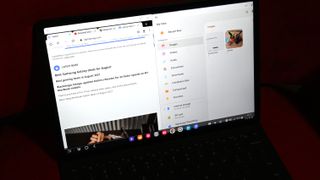
Unlike the Galaxy Tab S6 Lite, the Tab S7 FE gets the full Samsung OS experience with the inclusion of DeX, which brings a desktop interface to this mobile operating system. DeX can be swiftly launched using a keyboard shortcut or by going into settings. When it loads (it takes a few seconds), your screen will look closer to Chrome OS or Windows with a taskbar, start menu and notification pane.
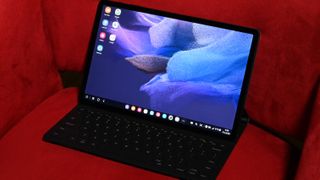
DeX is a skin, not a full-blown desktop OS. It does, however, bring some desktop features into the mix, like multi-window support and the ability to resize windows. So if you need to use two apps simultaneously, you can do so by enabling this mode.
Bottom line
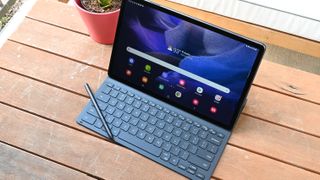
The Galaxy Tab S7 FE is a compelling tablet for those who don't want to pay a premium for a large display. It has a gorgeous panel, outstanding battery life, and a design that feels as luxe as its pricier counterparts. These amount to a tablet that is great for consuming content — be that an Instagram feed or Netflix show. Throw in the S Pen and the (optional) Keyboard Cover, and you can even get some lightweight work done.
But there are some notable drawbacks preventing the Tab S7 FE from being the obvious value pick. More a gaping hole than a chink in the armor is the underpowered Snapdragon 750G SoC. It, along with the missing fingerprint sensor, reveals the Tab S7's more modest aspirations when compared with the standard Tab S7 or the much more powerful iPad Air. Also hampering the experience is Android, an OS built for phones first, tablets second. Download enough apps or visit certain websites and you're bound to stumble over windows not optimized for such a large screen.
Despite these flaws, the Galaxy Tab S7 FE is a good option if you've been tempted by the iPad Air, but don't want to step into Apple's walled garden — so long as you only need this Samsung rival to perform the basics.
Phillip Tracy is the assistant managing editor at Laptop Mag where he reviews laptops, phones and other gadgets while covering the latest industry news. After graduating with a journalism degree from the University of Texas at Austin, Phillip became a tech reporter at the Daily Dot. There, he wrote reviews for a range of gadgets and covered everything from social media trends to cybersecurity. Prior to that, he wrote for RCR Wireless News covering 5G and IoT. When he's not tinkering with devices, you can find Phillip playing video games, reading, traveling or watching soccer.
